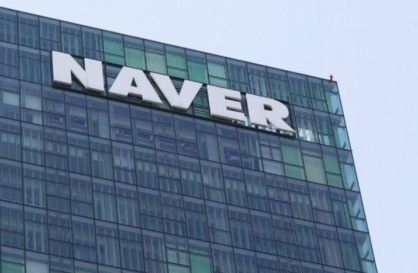Voters took to polling stations nationwide Wednesday for the crucial local elections that will bring potentially decisive effects for the Park Geun-hye administration and political parties.
The elections were seen as a referendum for the administration in the wake of the April 16 ferry disaster that left more than 300 people dead or missing. The government has been sharply criticized for its poor handling of the accident.

The results are likely to bring significant changes to interparty and in-house dynamics for the Saenuri Party and New Politics Alliance for Democracy.
The NPAD urged voters to “pass judgment” on the administration by supporting its candidates. In response, the ruling party played on its connection to the president claiming that their candidates would add weight to Park’s policies.
“These are elections that question the fundamentals of democracy -- whether the nation and the people need to exist for the president or if the president needs to exist for the people and the country,” NPAD spokesman Park Gwang-on said.
Similar sentiments were echoed by NPAD cochairman Rep. Kim Han-gil.
“The world does not get better by itself. It changes by voting. The people’s power will usher in a new Korea. (I) trust the people,” Kim said after casting his vote Wednesday.
The Saenuri Party also continued to push its agenda, calling on the public to support the Park Geun-hye administration.
“Come together to give the Park Geun-hye administration the power to set Korea right and to achieve development,” Saenuri Party spokesperson Rep. Min Hyun-joo said.
Impacted by the ferry accident, the Saenuri Party is struggling in Seoul where its candidate, Chung Mong-joon, was straggling behind NPAD’s Park Won-soon. The conservative party is also experiencing trouble in Busan, one of its key strongholds.
As for the NPAD, the biggest blow has come from the very action that enabled its formation, namely the merger with Rep. Ahn Cheol-soo, who is now the NPAD’s co-chairman. After the Democratic Party merged with Ahn’s group, which never formally became a party, the main opposition backtracked on its promise to forgo candidate nominations.
The change in its stance resulted in Yoon Jang-hyun being nominated for the Gwangju mayoral race, which in turn led Kang Woon-tae to leave the party and run as an independent. The most recent publicly available opinion polls placed Yoon far behind Kang.
For the NPAD, and particularly for Ahn, losing Gwangju could have irreparable consequences. Allowing a defector to take the party’s home ground would undermine Ahn’s leadership and open up room for yet more infighting among the factions.
Buoyed by the highest-ever early voting rate, this year’s local elections were projected to see higher than usual voter participation. With the exception of the first local elections held in 1995, voter response to local elections has remained below 60 percent. The figure in 1995 came in at 68.4 percent.
The May 30-31 advance voting saw participation of over 11 percent, more than double the rates recorded in last year’s two parliamentary by-elections.
Including the votes cast during the advance voting, over 20 million, or 48.9 percent, of the voters had made their choice as of 3 p.m.
By region, the participation rate was the highest in South Jeolla Province at 59.6 percent, followed by Gangwon Province with 56.3 percent. At the other end of the scale was Daegu with 44.7 percent, followed by Gyeonggi Province with 45.5 percent.
By Choi He-suk (cheesuk@heraldcorp.com)




![[Graphic News] Number of coffee franchises in S. Korea rises 13%](http://res.heraldm.com/phpwas/restmb_idxmake.php?idx=644&simg=/content/image/2024/05/02/20240502050817_0.gif&u=)



![[Robert J. Fouser] AI changes rationale for learning languages](http://res.heraldm.com/phpwas/restmb_idxmake.php?idx=644&simg=/content/image/2024/05/02/20240502050811_0.jpg&u=)
![[Today’s K-pop] Stray Kids go gold in US with ‘Maniac’](http://res.heraldm.com/phpwas/restmb_idxmake.php?idx=644&simg=/content/image/2024/05/02/20240502050771_0.jpg&u=)







![[Eye Interview] 'If you live to 100, you might as well be happy,' says 88-year-old bestselling essayist](http://res.heraldm.com/phpwas/restmb_idxmake.php?idx=652&simg=/content/image/2024/05/03/20240503050674_0.jpg&u=)
